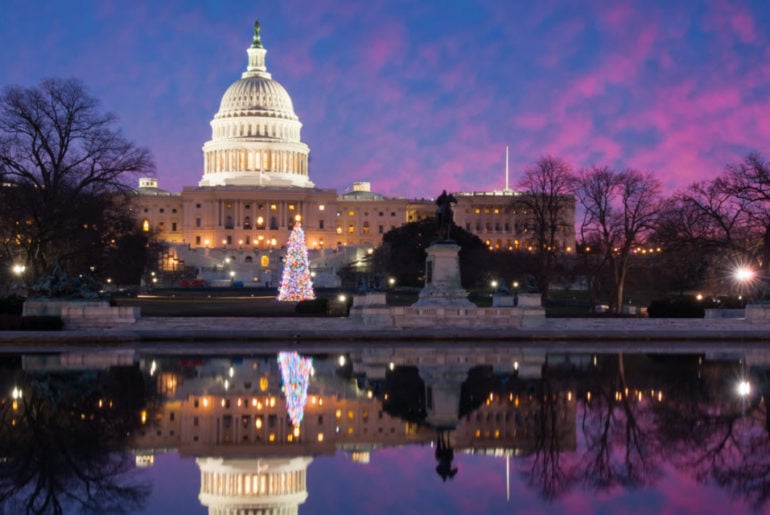On December 2, 2021, the EU, UK, US, and Canada all imposed additional coordinated sanctions on Belarus as a punitive action against the government led by President Alexander Lukashenko, which has been accused of human rights violations and creating a migrant crisis at Belarusian borders. As further described below, the sanctions included the designation of a number of parties (individuals and entities), whilst certain individuals will also be subject to travel bans preventing them entering or transiting the EU and UK. The US has also introduced financial sectoral sanctions, similar to those already imposed by the EU, UK and Canada.
As of November 30, 2021, a number of retaliatory measures have been suspended by the European Commission with regard to certain products originating in the US, based on Implementing Regulation (EU) 2021/2083. These measures were initially introduced on June 20, 2018, in response to US import tariffs on steel and aluminium originating from the EU. The US has meanwhile announced on October 31, 2021 that it will lift these measures under tariff rate quotas effective as of January 1, 2022.
Please join us for a weekly series, hosted by Baker McKenzie’s North America Government Enforcement partners Tom Firestone and Jerome Tomas. This weekly briefing is available on demand and will cover hot topics and current enforcement actions related to white collar crime and criminal investigations in the US and abroad to arm you with the information you need for your business week. This week’s discussion covers new OECD guidance on anti-corruption and SEC enforcement on ProPetro Holding Corp.
The Northern District of California recently determined that a taxpayer’s failure to timely file Reports of Foreign Bank and Financial Accounts (FBARs) was willful for two of four years at issue because the taxpayer affirmatively acknowledged the foreign accounts on the Schedules B for those years. The court found that the taxpayer’s failure to include Schedules B with the previous two years’ returns was not a willful violation, however.
Shelter-in-place or stay-at-home orders have been prevalent throughout the United States since March 2020 as state and local governments have sought to protect their citizens from the spread of the COVID-19 virus while at the same time reopen their economies in accordance with phased reopening plans. Key developments reflected in this week’s update to the Tracker include Colorado, Hawaii, Indiana, Louisiana and Rhode Island extending their state-wide orders on reopening.
On November 15, President Biden signed the more than USD 1 trillion Infrastructure Investment and Jobs Act into law. Despite substantial criticism and various attempts to amend the bill while it was under debate in Congress, the Infrastructure Act includes two changes to provisions of the Internal Revenue Code that deal with reporting obligations for certain digital assets transactions. Although one of these changes received much more attention than the other.
On November 10, 2021, the US Departments of State, Treasury, and Commerce issued a joint advisory (the “Advisory”) cautioning US companies operating in or considering operations in Cambodia to be conscious of dealings with entities and in sectors potentially involved in human rights abuses, criminal activities, and corrupt business practices. We describe the Advisory in additional detail below.
On November 18, 2021, President Biden signed Executive Order (“EO”) 14054 which terminates US sanctions related to Burundi by revoking EO 13712 of November 22, 2015. EO 13712 imposed sanctions related to Burundi due to “the killing of and violence against civilians, unrest, the incitement of imminent violence, and significant political repression” occurring in Burundi at the time and designated several parties as Specially Designated Nationals.
On November 10, the Department of State, Department of Treasury, and Department of Commerce released an advisory titled “Considerations for US Companies and Organizations that Conduct Business in Cambodia within Key Sectors or in Partnership with High Risk Entities” (the “Cambodia Advisory”). The Cambodia Advisory is focused on corporations and, according to the accompanying press release, is meant to caution businesses currently operating, or considering operations, in Cambodia to be mindful of interactions with entities and sectors potentially involved in human rights abuses, criminal activities, and corrupt business practices. This blog post will be focused on the corruption and responsible sourcing risks highlighted by the Cambodia Advisory.
On November 10, 2021, President Biden signed the Reinforcing Nicaragua’s Adherence to Conditions for Electoral Reform Act into law, which calls for increased sanctions against Nicaragua. This followed November 7 elections in Nicaragua that allowed President Daniel Ortega to stay in power for a fourth consecutive term.



